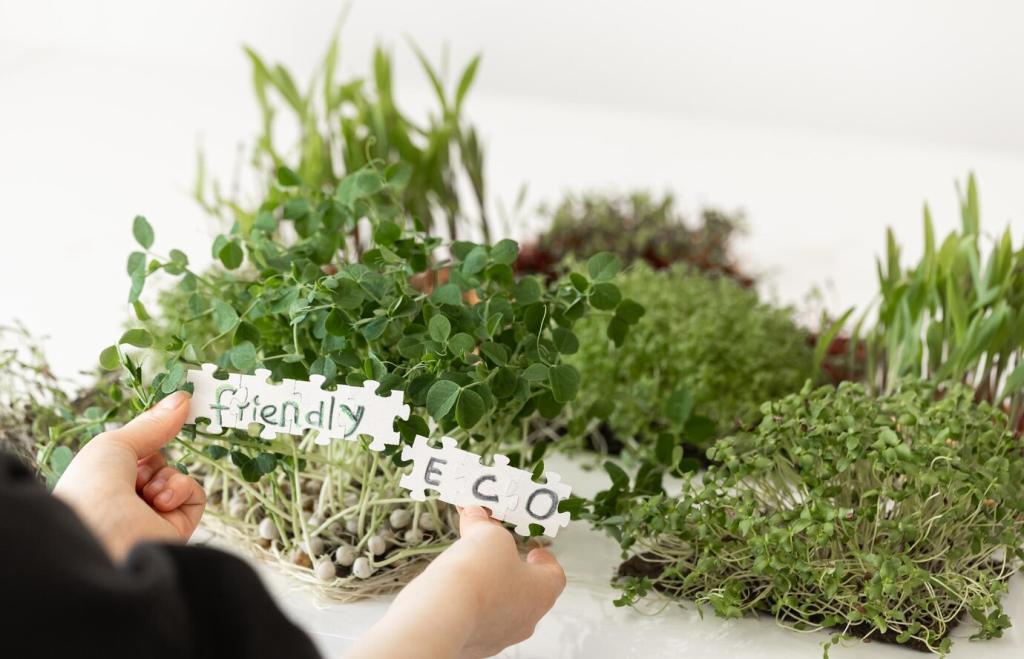Sustainable Materials for Urban Gardens
Sustainable materials are transforming urban gardening by making it more environmentally responsible and accessible. As cities continue to grow and residents increasingly seek green spaces, selecting eco-friendly resources becomes crucial. This guide explores different sustainable materials tailored for urban gardens, illustrating how they contribute to healthier environments and long-lasting, beautiful green spaces. By choosing the right materials, urban gardeners not only support the planet but also create more efficient and aesthetically pleasing gardens that thrive amid city landscapes.


Recycled and Upcycled Solutions
Reclaimed wood, sourced from old buildings, pallets, or unwanted furniture, can be transformed into beds, benches, or raised planters. Beyond its rustic charm, using reclaimed wood prevents additional deforestation and reduces landfill waste. This material often comes with a unique history and patina, adding character to any garden. With proper treatment and sealing, reclaimed wood becomes durable and resistant to the elements, making it suitable for most urban gardening needs. Moreover, it provides a responsible alternative to freshly harvested timber, further conserving natural resources.
Previous
Next
Natural and Renewable Resources
Bamboo is celebrated as a fast-growing, renewable resource ideal for urban gardening structures. Its versatility allows it to be crafted into fences, stakes, trellises, and pergolas, while its strength rivals that of traditional hard woods. Growing significantly quicker than most trees and often harvested without harming the root system, bamboo stands as an exemplary sustainable choice. Moreover, it sequesters carbon effectively, supports biodiversity, and offers a light yet resilient solution for urban spaces seeking natural aesthetics.

Permeable pavers are designed to let rainwater seep through, reducing runoff and promoting natural groundwater recharge. Typically manufactured from recycled concrete, clay, or other eco-friendly aggregates, they offer a stable walking surface while embracing sustainability. Their use in pathways and patios helps combat urban flooding—an increasing concern in densely built environments. Additionally, permeable surfaces assist with soil health and reduce the need for costly irrigation systems, making them particularly beneficial for climate-resilient urban gardening.

Natural stone, when locally sourced, is a durable and beautiful addition to urban garden hardscapes. It minimizes transportation emissions and takes advantage of regional geology, often blending seamlessly into the surrounding environment. Stones such as granite, slate, or limestone can be arranged as pathways, retaining walls, or decorative features. With proper installation, natural stone endures for decades, requiring minimal replacement. Its timeless appeal and low embodied energy make it a responsible material for sustainable landscaping.

Mulch serves multiple functions in urban gardens: conserving water, suppressing weeds, and moderating soil temperature. Sustainable mulch options include shredded bark, wood chips, or leaf litter—all derived from renewable resources or local waste streams. These organic materials gradually decompose, returning nutrients to the soil and supporting beneficial micro-organisms. Utilizing sustainable mulch not only beautifies gardens but also reduces landfill waste and the need for synthetic weed barriers.
